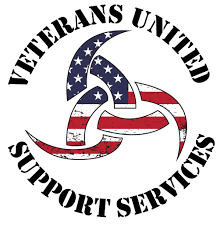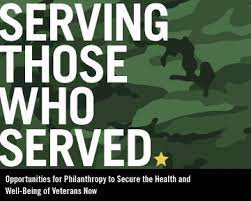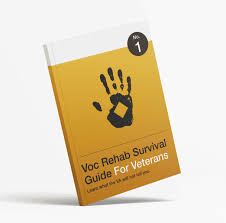Veterans Support Services: A Lifeline for Those Who Served
For many veterans, the transition to civilian life can be challenging. Fortunately, there are numerous support services available to help veterans navigate this journey and access the resources they need. These support services play a crucial role in providing assistance, guidance, and advocacy for veterans and their families.
Types of Veterans Support Services
There are various types of support services tailored to meet the diverse needs of veterans:
- Healthcare Services: Veterans can access medical care, mental health services, and rehabilitation programs through VA hospitals and clinics.
- Education and Training Programs: Veterans can receive assistance with educational opportunities, vocational training, and career development.
- Benefits Counseling: Support services help veterans understand and apply for benefits such as disability compensation, pensions, and housing assistance.
- Employment Assistance: Programs offer job placement services, resume writing workshops, and interview preparation to help veterans secure employment.
- Housing Support: Veterans can receive help with finding affordable housing options, mortgage assistance, and homelessness prevention programs.
The Impact of Veterans Support Services
Veterans support services have a profound impact on the lives of those who have served our country. These services not only provide practical assistance but also offer emotional support and a sense of community for veterans facing challenges. By accessing these resources, veterans can improve their quality of life, enhance their well-being, and achieve greater self-sufficiency.
How to Access Veterans Support Services
If you are a veteran in need of support services or know someone who could benefit from these resources, there are several ways to access help:
- Contact your local VA office or Veterans Service Organization (VSO) for information on available services.
- Visit veteran-focused websites and online platforms that provide comprehensive listings of support programs.
- Reach out to community organizations that specialize in assisting veterans with specific needs such as housing or employment.
Remember that seeking help is a sign of strength, not weakness. Veterans support services are here to honor your service by offering the assistance you deserve. Take advantage of these resources to navigate life after the military with confidence and resilience.
Six Essential Tips for Maximizing Veterans Support Services
- 1. Research and understand the different types of support services available for veterans.
- 2. Reach out to local veteran organizations or government agencies for assistance and information.
- 3. Stay informed about eligibility criteria for various benefits and services for veterans.
- 4. Take advantage of mental health resources specifically tailored for veterans.
- 5. Explore educational and job training opportunities designed for transitioning military personnel.
- 6. Encourage veterans to seek social support networks to connect with others who have similar experiences.
1. Research and understand the different types of support services available for veterans.
It is crucial for veterans to research and understand the various types of support services available to them. By taking the time to explore and educate themselves on the range of resources offered, veterans can better identify which services align with their specific needs and goals. Whether it’s healthcare assistance, educational programs, benefits counseling, employment support, or housing services, having a comprehensive understanding of the available options empowers veterans to make informed decisions about their well-being and future success.
2. Reach out to local veteran organizations or government agencies for assistance and information.
To access valuable support services tailored for veterans, it is recommended to reach out to local veteran organizations or government agencies for assistance and information. These organizations and agencies are well-equipped to provide guidance on available resources, benefits, and programs that can address specific needs of veterans. By connecting with these local entities, veterans can access a network of support that understands their unique challenges and is dedicated to helping them navigate post-military life successfully.
3. Stay informed about eligibility criteria for various benefits and services for veterans.
It is crucial for veterans to stay informed about the eligibility criteria for various benefits and services available to them. Understanding the requirements and qualifications for different programs ensures that veterans can access the support they are entitled to. By staying informed about eligibility criteria, veterans can effectively navigate the application process and maximize their access to resources that cater to their specific needs. Keeping up-to-date on eligibility criteria empowers veterans to make informed decisions about their benefits and services, ultimately enhancing their overall well-being and quality of life.
4. Take advantage of mental health resources specifically tailored for veterans.
Veterans are encouraged to take advantage of mental health resources specifically tailored to address the unique challenges they may face. These specialized services understand the complexities of military service and the impact it can have on mental well-being. By accessing these resources, veterans can receive targeted support, counseling, and therapy to help them navigate issues such as PTSD, depression, anxiety, and other mental health concerns. It is important for veterans to prioritize their mental health and seek out these tailored resources to promote healing and overall well-being.
5. Explore educational and job training opportunities designed for transitioning military personnel.
Exploring educational and job training opportunities specifically tailored for transitioning military personnel is a valuable tip in accessing veterans support services. These programs offer specialized training, certifications, and resources to help veterans successfully transition into civilian careers. By taking advantage of these opportunities, transitioning military personnel can acquire new skills, expand their career options, and enhance their employability in the civilian workforce. Investing in education and job training can be a crucial step towards a successful post-military career transition for veterans.
6. Encourage veterans to seek social support networks to connect with others who have similar experiences.
Encouraging veterans to seek social support networks is a valuable tip in navigating the challenges of transitioning to civilian life. Connecting with others who have shared similar experiences can provide a sense of camaraderie, understanding, and belonging. These social support networks offer a safe space for veterans to share their stories, seek advice, and build meaningful relationships with individuals who can relate to their journey. By fostering these connections, veterans can find comfort, encouragement, and a sense of community as they navigate the complexities of life after military service.




